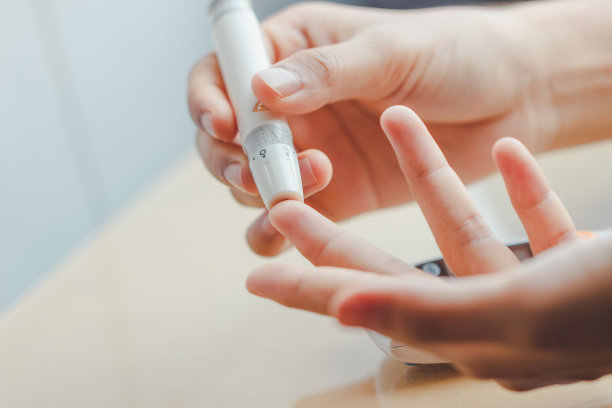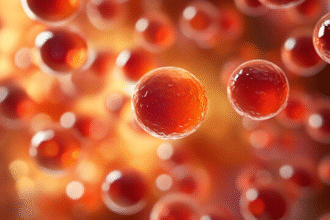Mei’s Journey
When Mei was 45, she noticed she was always thirsty and visited the restroom frequently. A routine check revealed high blood sugar—she had type 2 diabetes. At first overwhelmed, Mei learned that with knowledge, support, and daily habits, she could live well and even reverse early-stage changes.
What Is Diabetes Mellitus?
Diabetes mellitus is a group of metabolic diseases where the body cannot produce enough insulin or use it effectively. Insulin is the hormone that moves sugar from your blood into your cells for energy. Without it, sugar builds up, leading to high blood glucose (hyperglycemia) and long-term damage to organs.
Why Is It So Common?
- Changes in diet, higher calorie intake, and sedentary lifestyles
- Aging populations and rising obesity rates
- Genetics and family history
In China, as in many countries, diabetes prevalence has climbed steadily, posing major challenges for health systems.
Types of Diabetes
-
Type 1 Diabetes
• An autoimmune condition where the body attacks insulin-producing cells in the pancreas.
• Often appears in childhood or adolescence.
• Requires daily insulin injections to survive. -
Type 2 Diabetes
• Characterized by insulin resistance and impaired insulin secretion.
• More common in middle-aged and older adults but increasingly seen in younger people.
• Managed with lifestyle changes, oral medications, and sometimes insulin. -
Gestational Diabetes
• Develops during pregnancy when hormonal changes affect insulin activity.
• Usually resolves after birth but increases risk for type 2 diabetes later. -
Other Types
• Secondary to other conditions (e.g., genetic disorders, medications, or surgeries).
• Less common but important to diagnose correctly for targeted treatment.
Recognizing the Signs
Common symptoms include:
- Increased thirst and urination
- Unexplained weight loss
- Fatigue and blurred vision
- Slow-healing cuts or infections
Early detection through screening is key—especially if you have risk factors like family history or obesity.
Managing Diabetes: Treatment and Lifestyle
Medication Options
- Type 1: Insulin therapy (injections or pump).
- Type 2:
- Oral hypoglycemic agents (e.g., metformin) to reduce glucose production.
- Newer medications (SGLT2 inhibitors, GLP-1 agonists) that improve glucose control and heart health.
- Insulin if other treatments aren’t enough.
Daily Habits
- Balanced Diet: Focus on whole grains, vegetables, lean proteins, and healthy fats.
- Regular Exercise: Aim for at least 150 minutes of moderate activity per week.
- Blood Sugar Monitoring: Keep a log to track patterns and adjust treatment.
- Weight Management: Even a 5–10% weight loss can improve blood sugar control.
Myth vs. Fact
| Myth | Fact |
|——————————————-|———————————————————————-|
| Eating sugar causes diabetes. | No—diabetes involves complex factors; excess calories and weight do. |
| Once you have diabetes, you can’t eat carbs. | Carbs are essential; managing portions and types is key. |
| Insulin is a last resort. | For type 1, it’s essential; for type 2, early use can protect organs. |
| Diabetes is not serious if symptoms are mild. | Chronic high blood sugar can damage heart, kidneys, eyes, and nerves. |
Your Self-Care Toolbox
- Meal Planning: Work with a dietitian to find a sustainable meal plan.
- Physical Activity: Find enjoyable activities—walking, cycling, or dance.
- Stress Management: Techniques like yoga, meditation, or hobbies.
- Foot Care: Inspect your feet daily to prevent ulcers and infections.
- Regular Check-Ups: Eye exams, kidney tests, and cardiovascular screenings.
Frequently Asked Questions
Q: Can I reverse type 2 diabetes?
A: Early-stage type 2 can go into remission with weight loss, diet, and exercise.
Q: How often should I check my blood sugar?
A: It depends on your treatment plan—often several times daily if on insulin, fewer times if on oral meds.
Q: Can I still enjoy my favorite foods?
A: Yes—focus on portion control and occasional treats within your meal plan.
Resources and Support
- Chinese Diabetes Society: http://www.diabetes.org.cn
- International Diabetes Federation: https://idf.org
- Local support groups: Ask your endocrinologist for referrals.
Take Action Today
Schedule a check-up, review your lifestyle habits, and set small, achievable goals. Managing diabetes is a journey—every healthy choice counts!







